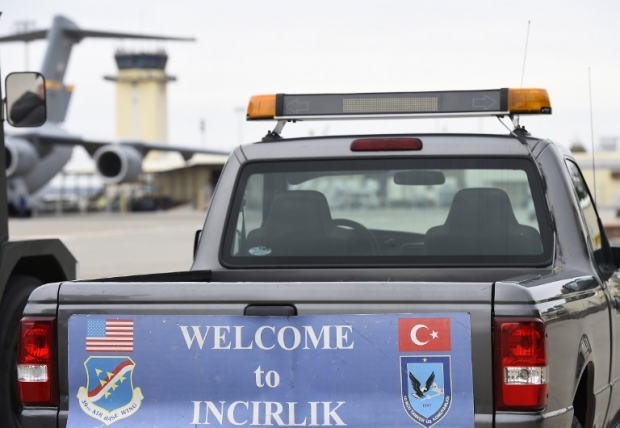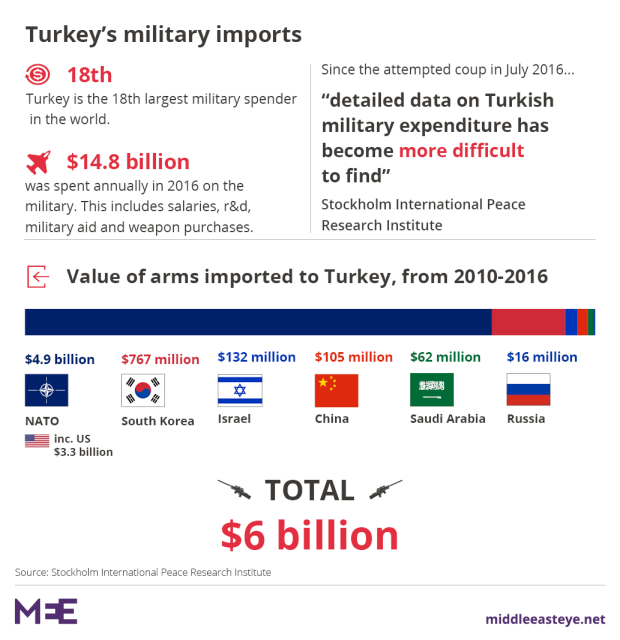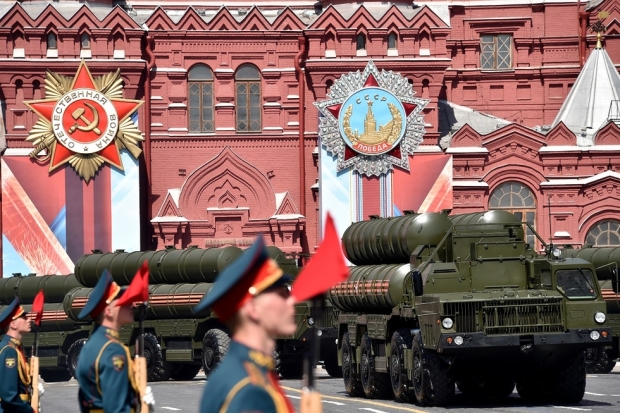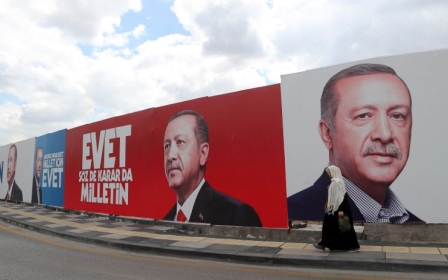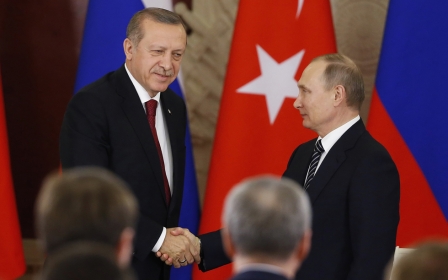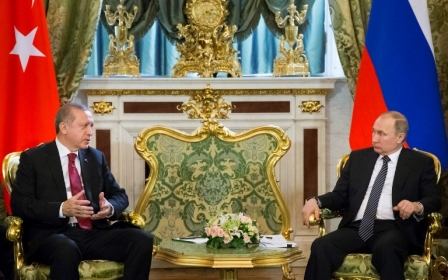Turkey's Russian missile deal: Part politics, part need, part US apathy
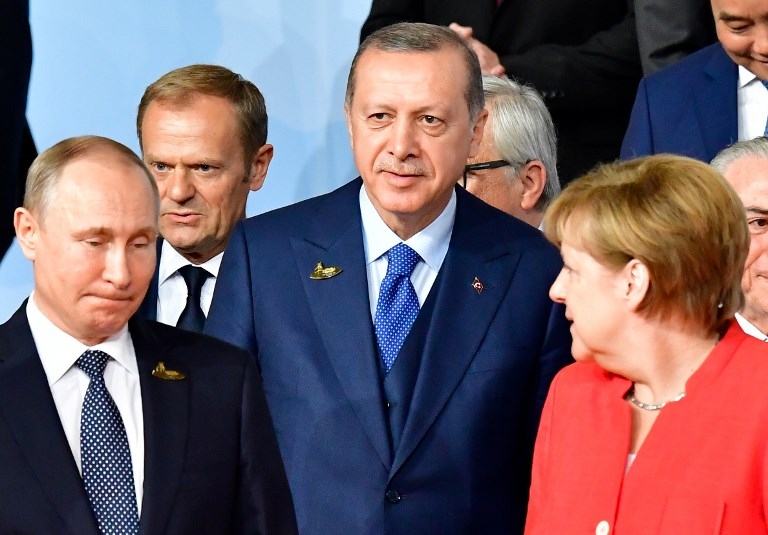
ISTANBUL, Turkey – Stuck between a distrustful and increasingly unhelpful ally and a former foe and rival seeking to disrupt existing alliances in any way it can, Turkey has jumped at the latest carrot Moscow has offered.
The carrot came in the shape of Russia’s most sophisticated missile defence system: The S-400.
Turkey’s announcement and Moscow’s confirmation that the deal to purchase the S-400 system was making progress represents a rare recent victory for Turkish policymakers.
The deal can mean whatever the vested parties want it to mean.
It satisfies those who view it as a bargaining tool being used by Ankara to extract concessions from Washington. It satisfies those who see it as Ankara stepping up to address its own security needs without being hostage to the US government.
And it could potentially provide the nudge for the US Congress to reconsider its reluctance to sell weaponry to its ally by refocusing on longer-term strategic interests.
For Moscow, the sale of its S-400 system to Turkey - despite fears that the technology and details on its real capabilities could find its way into Nato hands - represents a major coup.
Win-win for Moscow
Traditional reasons alone make it a win-win situation for Moscow.
Nato member Turkey has the alliance’s second-largest army and is in close proximity to Russia. Nato nuclear warheads are believed to be stockpiled at the Incirlik airbase. And Russia’s shipping access to the Mediterranean is through the Turkish straits. Turkey has always been Nato’s southern bulwark against Russia.
Turkey has been clear for years that what it wants is technology transfer and its final goal is indigenous production
- Nursin Guney, expert on Turkish-Russian ties
Moscow will consider it a victory even if the S-400 deal manages to only create turbulent times for the alliance and Turkey, especially given its own rapid downturn in ties with the United States.
As far as Ankara is concerned, such a deal would address what it sees as a primary and urgent security concern. A bonus result would be if it results in increased US willingness regarding weapons systems transfers to Turkey.
Nursin Guney, the dean at Bahcesehir Cyprus University and an expert on Turkish-Russian ties, told Middle East Eye the S-400 deal should be seen as an “intermediate” solution.
“Turkey has been clear for years that what it wants is technology transfer and its final goal is indigenous production. That is a long-term process and it has had to suffice with the S-400 in the interim,” she said.
“Ankara didn’t seek out Russia to rile its Western allies. For years it held such talks with firms from allied countries such as Italy and France. Their reluctance to agree to a technology transfer led to this deal,” said Guney.
Ahmet Kasim Han, a professor of international relations at Istanbul’s Kadir Has University, told MEE that among the myriad reasons behind such a move, Washington’s apathy and lack of strategic vision figured highly.
“The US has ignored all of what Turkey sees as vital issues and the reason for it is a lack of strategy and foresight,” said Han.
“I wouldn’t call Turkey-US relations a road wreck but there is a lot of rubble out there. The peculiar situation with the governments in both capitals has resulted in a difficult situation where maintaining dialogue is vital even if such calls have become stale through repetition.”
US mismanagement?
Han said the S-400 deal - which perhaps started as a bluff - ended up being very real due to US mismanagement of the situation.
Turkish President Recep Tayyip Erdogan on Wednesday took aim at Turkey’s allies for their criticism of the S-400 deal.
“They went crazy because we made the S-400 agreement. What were we supposed to do, wait for you? We are taking and will take all our measures on the security front,” said Erdogan.
The US has ignored all of what Turkey sees as vital issues and the reason for it is a lack of strategy and foresight
- Ahmet Kasim Han, professor of international relations
The Pentagon had previously said that "generally it's a good idea" for Nato allies to buy inter-operable equipment.
The troubled US-Turkish relationship does not mean that Turkey is no longer making military deals with its Nato partners. Evidence of this came when, on the same day that progress on the S-400 deal was mentioned, the Turkish military also announced the delivery and introduction into service of six military transport Chinook helicopters from Boeing.
According to Guney, threat perceptions and security-related procurements need to be made with worst-case scenarios in mind, and Ankara sees a security gap that needed an urgent solution.
She said Iran was a neighbouring country with a large ballistic missile inventory whose nuclear deal - which doesn’t cover ballistic missiles – was at risk under the presidency of Donald Trump.
“I am not saying there is a risk of attack from Iran but you need measures in place. After all, Nato’s advance warning radars are installed in Kurecik, Malatya, and Iran views that as a direct threat,” she said.
She added that the same radar system was also a sign of continuing Nato cooperation and that the S-400 deal didn’t mean taking a side for Turkey.
Guney also pointed to the new threats from Syria and said the current Nato Patriot missile defence batteries deployed came with too many conditions attached to provide a real deterrent.
“It was fine when the only threat was the regime’s stock of Scud missiles. Now you have the PYD and Daesh with their own projectile weapons,” she said, referring to the Kurdish Democratic Union Party in Syria and the Islamic State group.
“The deployment of Patriots and limitations imposed regarding who they can be used against means they don’t meet Turkey’s needs,” she said.
In Han’s view, Turkey’s aim to change the country’s economic narrative also links into its decision to go for the S-400 system.
“Turkey has been looking to make the military-industrial sector the centrepiece of its economic engine for quite a while now. It wants these deals including technology transfer clauses to develop its own industry and create value added products,” he said.
Turkey has been looking to make the military-industrial sector the centre piece of its economic engine for quite a while now
- Ahmet Kasim Han, professor of international relations
Another key, and often overlooked factor, is Israel and its own threat perceptions and how Turkey within Nato in part offers some protection.
Han said although the Israeli factor in no way would have been part of the S-400 decision, it could have an influence in the longer term, particularly if US-Turkish relations worsen.
“The current Turkish government’s feelings towards Israel are no secret. But a Turkey anchored to the United States puts Israel in a stronger regional position. So it might use its lobbying power in Washington to smooth ties.”
Middle East Eye propose une couverture et une analyse indépendantes et incomparables du Moyen-Orient, de l’Afrique du Nord et d’autres régions du monde. Pour en savoir plus sur la reprise de ce contenu et les frais qui s’appliquent, veuillez remplir ce formulaire [en anglais]. Pour en savoir plus sur MEE, cliquez ici [en anglais].


